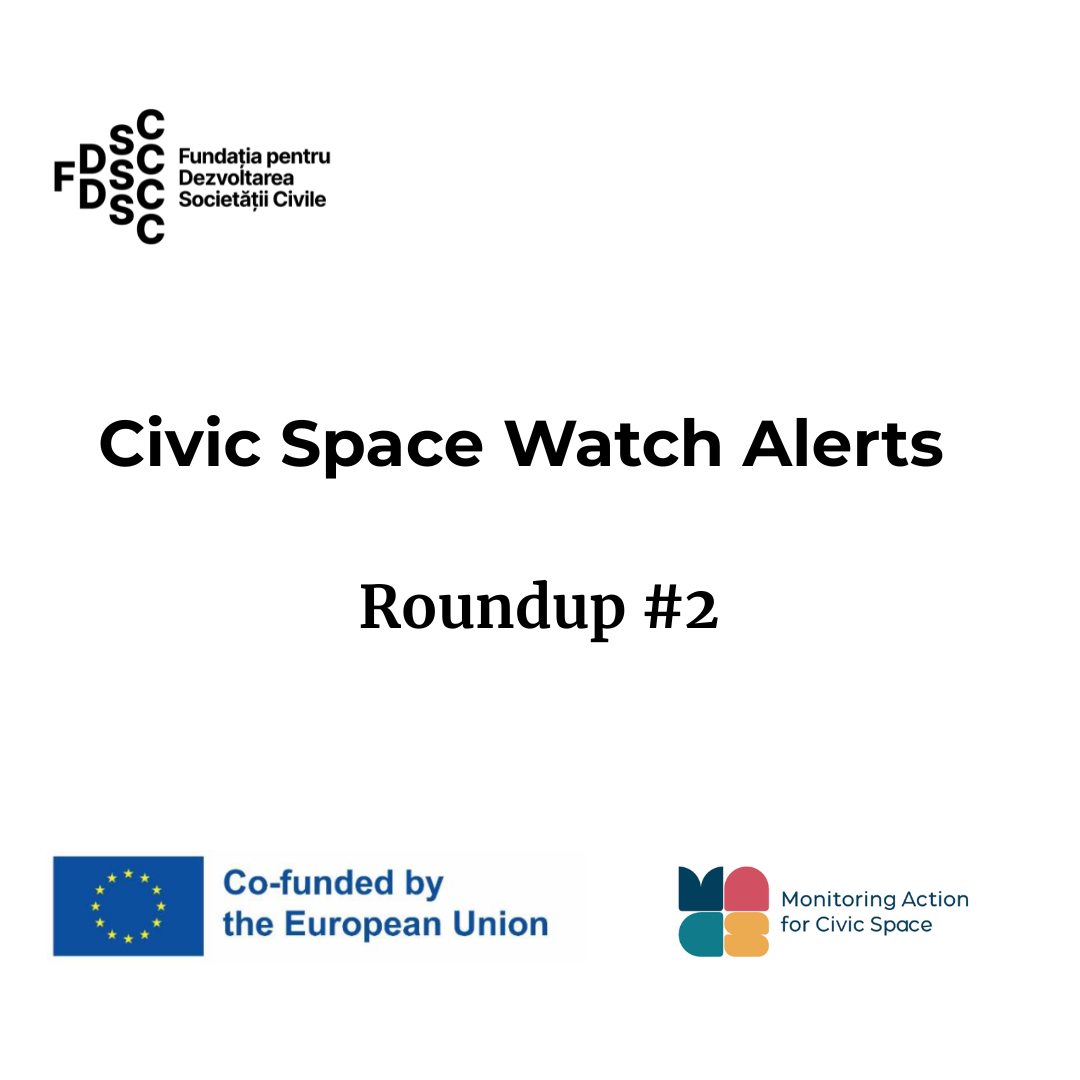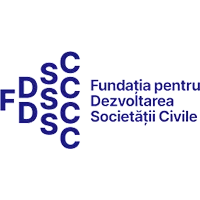Romania — Draft law risks turning CSOs into public bodies
The Civil Society Development Foundation signals, through an alert published in the second Civic Space Watch Alerts Roundup, part of the Early Warning and Alert System (EWAS) developed under the MACS (Monitoring Action for Civic Space) project. This European initiative aims to monitor and rapidly highlight trends affecting civic space, in a context where non-governmental organizations, activists, and human rights defenders face increasing pressures and restrictions.
This alert emerges in a European context characterized by growing pressure on civil society, as reflected in the Civic Space Report 2025, which outlines the trends of shrinking civic freedoms, the rise of extremist rhetoric, and the challenges faced by non-governmental organizations and human rights defenders.
CSDF alert
Romania’s government is proposing a new Administrative Procedural Code that would classify CSOs, including independent media outlets registered as CSOs, as entities subject to the Freedom of Information Act. This means CSOs would have a legal obligation to respond to public information requests, similarly to state institutions. The new Administrative Procedural Code seeks to unify all administrative norms currently across several pieces of legislation into one single code. This process would allow for a thorough reform of how public entities work and simplify and bring more clarity for all stakeholders engaging with the state. However, by including CSOs as “obliged subjects” under the freedom of information framework, the draft law goes beyond mere reform of procedural norms.
The draft code, initiated by the Ministry of Development, Public Works and Administration, also discriminates between different types of private entities, as only associations and foundations are included in the list of mandatory entities, with for-profit entities excluded. The draft was published in a public consultation in February 2025, and a public debate took place on 12 March. Several CSOs participated in the public debate, but most of their proposals for amendments have been rejected.
If adopted, the new code could have serious negative consequences for civic space. Making CSOs responsible for providing access to information gathered or stored about their work could distort their role, place an extra burden on them and use up scarce resources. Additionally, some CSOs working with vulnerable groups manage information from the groups that might be harmful to publicise. The draft law does not yet specify what the sanctions for non-compliance would be, but there is a serious risk that any penalties imposed could be used to harass or intimidate CSOs, particularly those working on topics such as anti-corruption, human rights, minority rights, strategic litigation, and investigative journalism. The law could therefore become a tool for political interference and pressure.
The legal and administrative burdens to respond to information requests introduced by the law could also discourage civic participation by making it harder for people to organise or join associations.
Civic Space Watch Alerts Roundups?
Space Watch Alerts Roundup is a periodic summary of the latest developments regarding civic space in Europe, based on the Early Warning Alert System (EWAS) developed under the MACS – Monitoring Action for Civic Space project. At a time when civic freedoms are shrinking, these alerts highlight situations and trends that require immediate action from decision-makers in order to protect democracy and the right of civil society to organize and express itself freely.
—-
The MACS: Monitoring Action for Civic Space project is co-funded by the European Union.
It is implemented by the European Center for Not-for-Profit Law, European Civic Forum, Bulgarian Center for Not-for-Profit Law, Foreningen Nyt Europa, Le Mouvement associatif, Okotars Alapitvany, Stichting Nederlands Helsinki Comite, Ogolnopolska Federacja Organizacji Pozarzadowych, Fundația pentru Dezvoltarea Societății Civile.
Co-funded by the European Union. Views and opinions expressed are however those of the author(s) only and do not necessarily reflect those of the European Union or the European Education and Culture Executive Agency (EACEA). Neither the European Union nor the granting authority can be held responsible for them.
Contactează-ne
Ne găsești la adresa
Bulevardul Nerva Traian
nr. 21, Sector 3, București
România
Fii la curent cu activitatea FDSC!
FDSC 30 de ani
FDSC 30 de ani
FDSC 30 de ani
FDSC 30 de ani
FDSC 30 de ani
© 2026 Fundația pentru Dezvoltarea Societății Civile. Toate drepturile rezervate.



